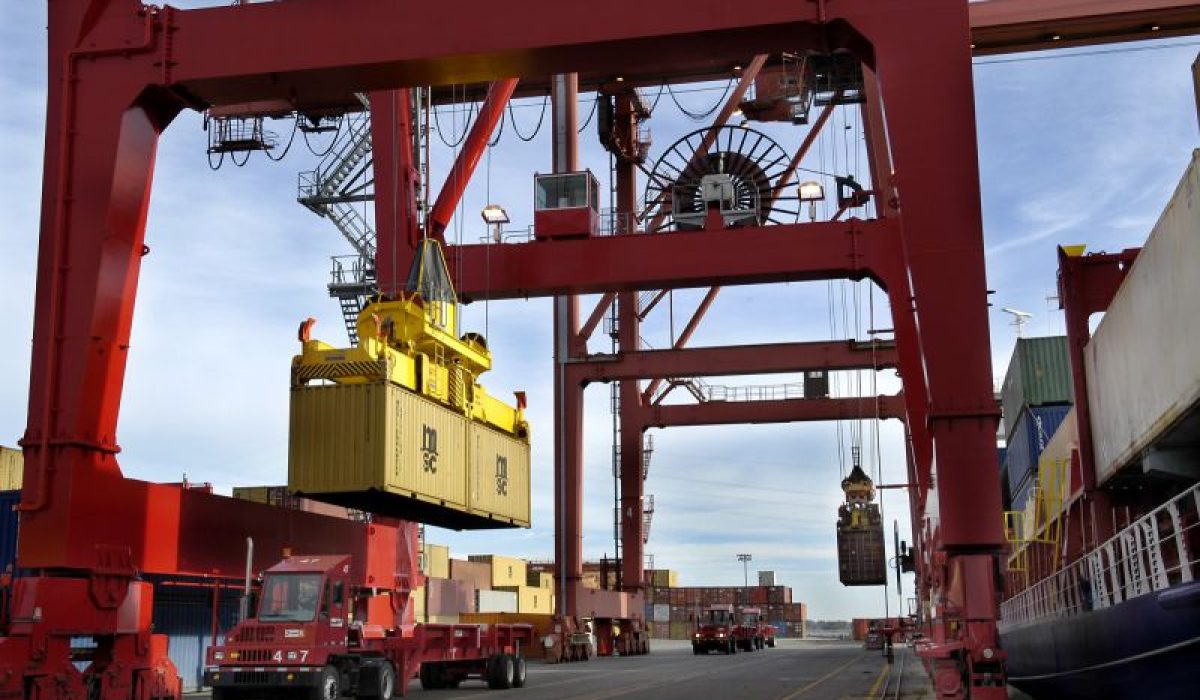North American shippers and Canadian ports are bracing for the effects of an anticipated freight rail work stoppage just after midnight on Thursday, 22 August.
At this time, the major Canadian freight railways, Canadian National (CN) and Canadian Pacific (CPKC) will lock out members of the Teamsters Canada Rail Conference, who have indicated intentions to go on strike rather than agree to binding arbitration over a new labor agreement. The old one expired on Dec. 31, 2023.
“We are concerned about the prospect of further labour disruptions impacting port and supply chain operations. The impact to the Port of Vancouver will be significant, with approximately two-thirds of all cargo volumes at the port moved by rail, including 90% of international exports,” a Port of Vancouver representative told Container News.
The Canadian port estimates that approximately $1 of every $3 of Canada’s trade in goods outside of North America moves through the Port of Vancouver.
At the Port of Halifax on Canada’s Atlantic coast, rail serves approximately 60% of containerized cargo business. Cargoed imports passing through Halifax are destined to other parts of North America via rail, the port said.
“Port of Halifax supply chain partners are monitoring the situation closely as there is potential for significant impacts if we have a rail service disruption,” a Port of Halifax official said.
In anticipation of the work stoppage and amid the continued negotiations impasse between the railways and union members, both CN and CPKC placed on embargoes in shipments. CN’s embargoes for intermodal shipments were effective on 16 August for shipments destined for Canada and originating in U.S. Northeast ports and interchanges in the Midwest, Mexico and Georgia, according to a CN bargaining update. Carloads of hazardous materials were embargoed on 12 and 15 August, while remaining carloads will face embargoes on 22 August.
Meanwhile, CPKC has also reportedly placed embargoes on rail shipments originating in Canada as well as rail shipments from the U.S. and destined for Canada.
The embargoes put a strain on both Canadian ports as well as U.S. ports that get the diverted traffic, according to experts. Affected cargo include container movements as well as movements of key exported commodities such as grain, potash and coal.
Indeed, the “Canadian gateways have already seen a reduction of volumes due to the uncertainty around rail operations,” the Port of Halifax official said.
The representative from the Port of Vancouver noted, “We have taken proactive measures to manage vessel arrivals and anchorage assignments to maintain port fluidity, ensure the safe movement of vessels and manage anchorage capacity for terminals not affected by strike activity. For example, ships currently en route to Vancouver are being told to adjust their arrival times in port by slowing down to prevent further congestion.”
But even if the work stoppage is short-lived and the parties reach an agreement days or even hours after the work stoppage begins, the effects can last months, according to the Vancouver port representative, who said, “It took many months to clear the backlog of congestion from the 13-day strike by B.C. longshore workers in 2023 at the Port of Vancouver, with delayed shipments and overburdened infrastructure struggling to restore normalcy.”
The port official added, “At the Port of Vancouver alone, that strike affected the movement of $800 million of goods a day [and] saw 17 cargo ships diverted to other ports, while many more were stuck waiting at anchor—causing substantial delays and financial losses for businesses dependent on these goods.”


